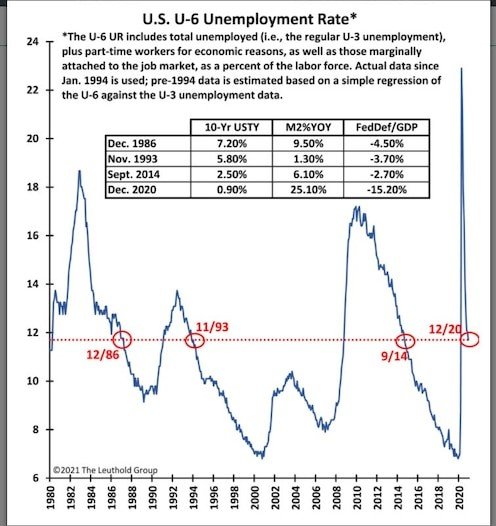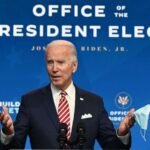The U.S. President-elect Joe Biden on Thursday outlined a $1.9 trillion stimulus package proposal, in what he called a bold investment needed to jump-start the economy, however, one measure of the labor market suggests the massive stimulus is unnecessary and potentially harmful to future growth, according to James Paulsen, chief investment strategist at The Leuthold Group.
President Donald Trump on December 27 signed a $900 billion stimulus package which is being pumped into the economy after the $2.2 trillion Cares Act.
Although the some economist and investors have called for additional relief package with many pointing to the still-elevated unemployment rate as a sign of progress to be made. The most commonly cited measure is the U-3 rate, but the government’s U-6 rate – which includes Americans working part-time for economic reasons and those marginally involved in the labor force – tells a different story, Paulsen said in a client note on Thursday according to Business Insider.
Read: December 2020 U.S Employment Data – worse than expected
The U-3 rate currently sits at 6.7%, and the U-6 gauge dropped to 11.7% last month. Five of the last six recessions since 1980 – including the coronavirus downturn – touted U-6 rates above today’s level, Paulsen said.
The U-6 rate hit a record-high of 22.9% in April amid the Coronavirus pandemic. The $2.2 trillion CARES Act and easy monetary conditions and helped the rate retrace more than half of its climb in a matter of months. It took years for such improvement to take place following the 1982 and 2008 recessions, Paulsen noted.

The rapid pace of recovery also comes as the country’s policy response to the recession remains extraordinarily strong. Bond yields remain at historic lows, interest rates remain near zero, and money supply growth vastly outpaces that seen in past downturns.
Calls for additional stimulus come from a good place, Paulsen said. The CARES Act played an “invaluable” role in driving the country’s initial bounce-back.
Still, spending on additional aid when history suggests such support is unnecessary and poses “the most significant risk” to growth beyond 2021, the strategist added. Excessive accommodation could fuel a spike in inflation and, in turn, prompt the government and the Fed to swiftly tighten conditions. Low-income Americans and minorities would likely bear the brunt of a prematurely halted recovery, Paulsen said.
“It would be sadly ironic if the aggressive actions of overuse and abuse of policies implemented today – aimed primarily to benefit the most vulnerable groups – were to eventually hurt these same groups the most,” he added.
Ifunanya Ikueze is an Engineer, Safety Professional, Writer, Investor, Entrepreneur and Educator.
























































